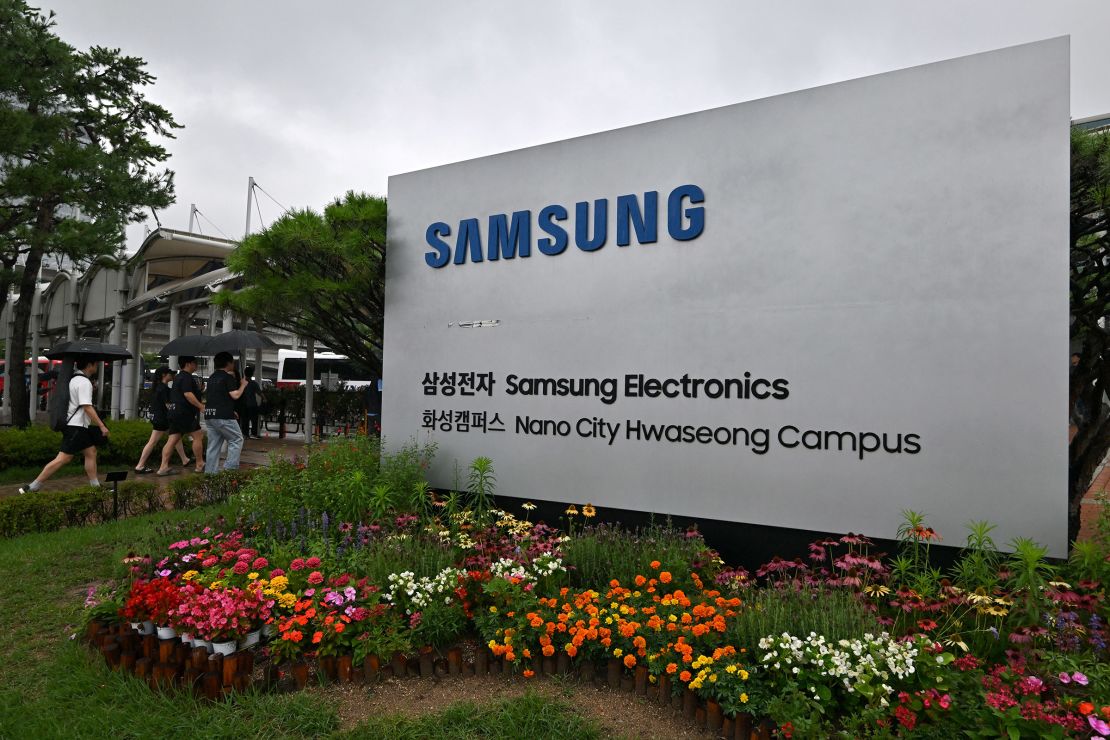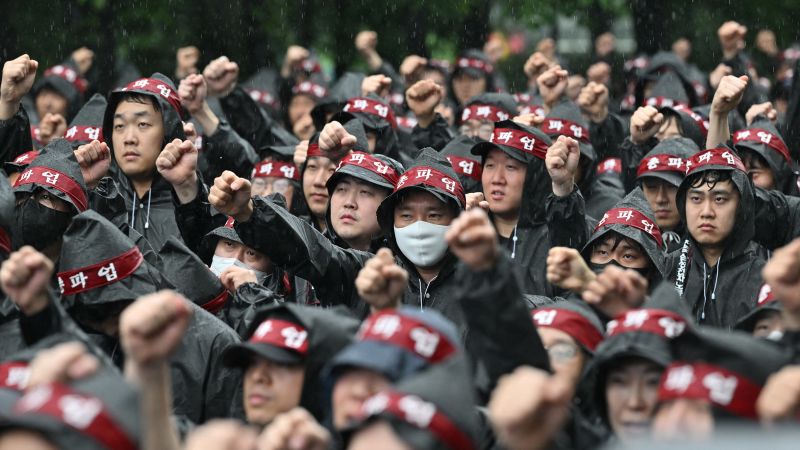The largest labor union at Samsung Electronics in South Korea has declared an indefinite strike after a three-day walkout failed to yield any ground in a tense dispute between workers and the tech giant over pay and bonuses.
The announcement Wednesday follows a strike earlier this week involving 6,000 workers, mainly from the company’s semiconductor division, according to the union.
The National Samsung Electronics Union (NSEU) said that its 31,000 members — representing a nearly quarter of the company’s total workforce in the country — would launch an indefinite strike from July 10 — the largest labor action in the smartphone and chipmaking giant’s 55-year history.
The company will “regret this decision” of not coming to the negotiation table, the union said in a statement posted on its official website.
The longer the strike lasts, the more likely it is that management will “kneel down” and hold a dialogue, the NSEU said, adding that they’re “confident of victory.”
Samsung Electronics said in a statement Wednesday the company “remains committed to engaging in good faith negotiations with the union,” adding that it will “ensure no disruptions occur in the production lines.”
However, Son Woomok, the union leader, told CNN Monday that “it will take a long time to restore facilities that are shut down due to a strike.”
The dispute first came to attention in June, when the union staged a one-day strike following failed talks over transparent pay structure and better working conditions.
The world’s biggest memory chipmaker has had a rough few years. A historic shortage of computer chips during the Covid pandemic was followed by falling demand last year as consumer appetite for electronics remained weak because of global economic uncertainty.
But things are looking up for the company because of the AI boom.
It is hopeful about a resurgence in demand for mobile devices this year, particularly with the rollout of new products, such as AI-powered smartphones. Samsung Electronics said last week that it estimates a more than 15-fold rise in its second-quarter operating profit, as compared to the same time previous year.

The workers want this optimism reflected in their pay. “The company is not treating the employees properly,” said Woomok on Monday.
“Even though the operating profit is high, the company has been saying it’s in a crisis situation for over 10 years, and employees are increasingly dissatisfied with the lack of performance bonus increases,” he added.
Read the full article here




